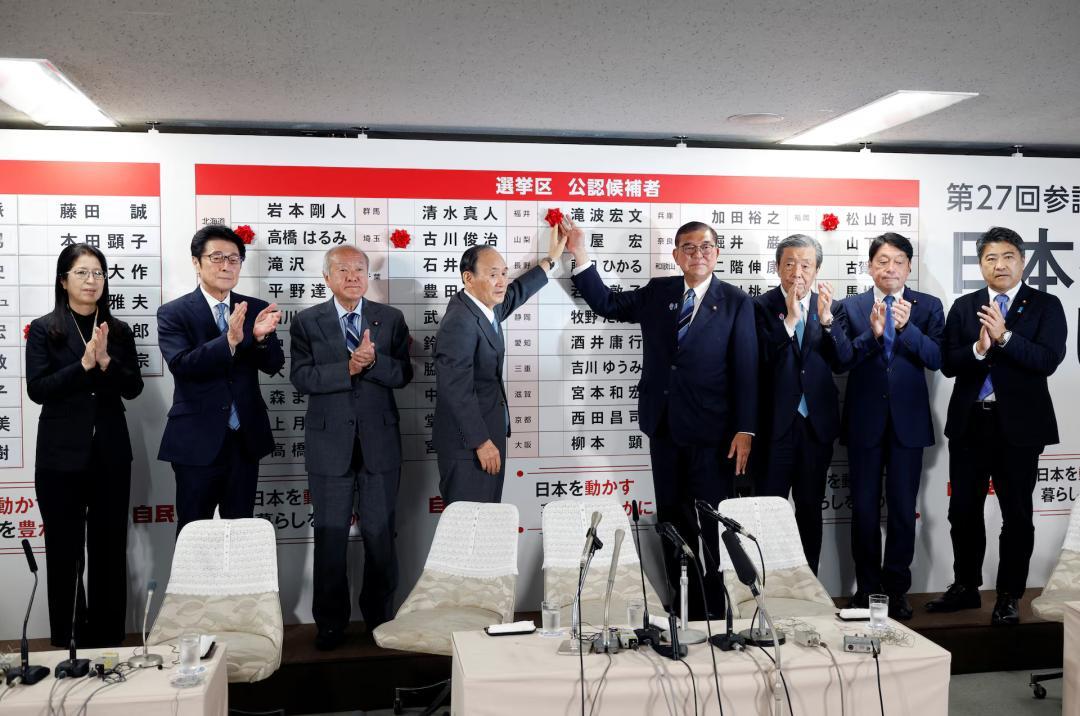
Japan Ruling Alliance to Lose Upper House Majority, Show Exit Polls
In a stunning blow to Japanese Prime Minister Shigeru Ishiba, the ruling coalition is projected to lose its majority in the upper house of the country’s parliament, according to local media exit polls. The Liberal Democratic Party (LDP) and its partner Komeito, which have been in power since 2012, were expected to win between 32-51 seats in the 248-seat upper chamber, falling short of the 50 seats needed to retain control.
The exit polls, conducted by public broadcaster NHK, indicate a significant loss of support for the ruling coalition, which has been plagued by scandals and public dissatisfaction with the government’s handling of various issues. The results are a major setback for Prime Minister Ishiba, who had been seeking to maintain his party’s grip on power and had been hoping to win a majority in the upper house.
The Japanese election, which took place on Sunday, was seen as a crucial test of the government’s popularity and a referendum on the prime minister’s leadership. The results of the exit polls suggest that the public has rejected the ruling coalition’s policies and is looking for a change.
The LDP and Komeito, which have been in power since 2012, had been seeking to maintain their majority in the upper house, which would have given them greater control over the country’s legislative agenda. However, the exit polls suggest that the opposition parties, including the Constitutional Democratic Party of Japan and the Japanese Communist Party, have made significant gains.
The loss of the upper house majority is a significant blow to Prime Minister Ishiba’s government, which had been facing growing public dissatisfaction with its handling of various issues, including the country’s economy, education system, and social security. The government had been seeking to pass several key bills, including a controversial bill to reform the country’s labor laws, which is now likely to be stalled.
The election was also seen as a test of the popular support for the prime minister, who had been facing growing criticism over his handling of the country’s economy and his government’s response to various crises, including the coronavirus pandemic. The exit polls suggest that the public has lost confidence in the prime minister and his government, and is looking for a change.
The loss of the upper house majority is also likely to have significant implications for the country’s political landscape. The opposition parties, which had been struggling to gain traction, are now likely to gain greater influence and may be able to challenge the government’s policies and legislation.
The results of the election are also likely to have implications for the country’s economy. The government had been seeking to pass several key bills, including a stimulus package to boost economic growth, which is now likely to be stalled. The loss of the upper house majority is likely to make it more difficult for the government to pass key legislation and may lead to a period of political gridlock.
In conclusion, the loss of the upper house majority by the Japanese ruling coalition is a significant blow to Prime Minister Ishiba’s government and a major setback for the country’s political landscape. The results of the exit polls suggest that the public has lost confidence in the government and is looking for a change. The implications of the election are far-reaching and are likely to have significant impacts on the country’s economy, politics, and social fabric.






